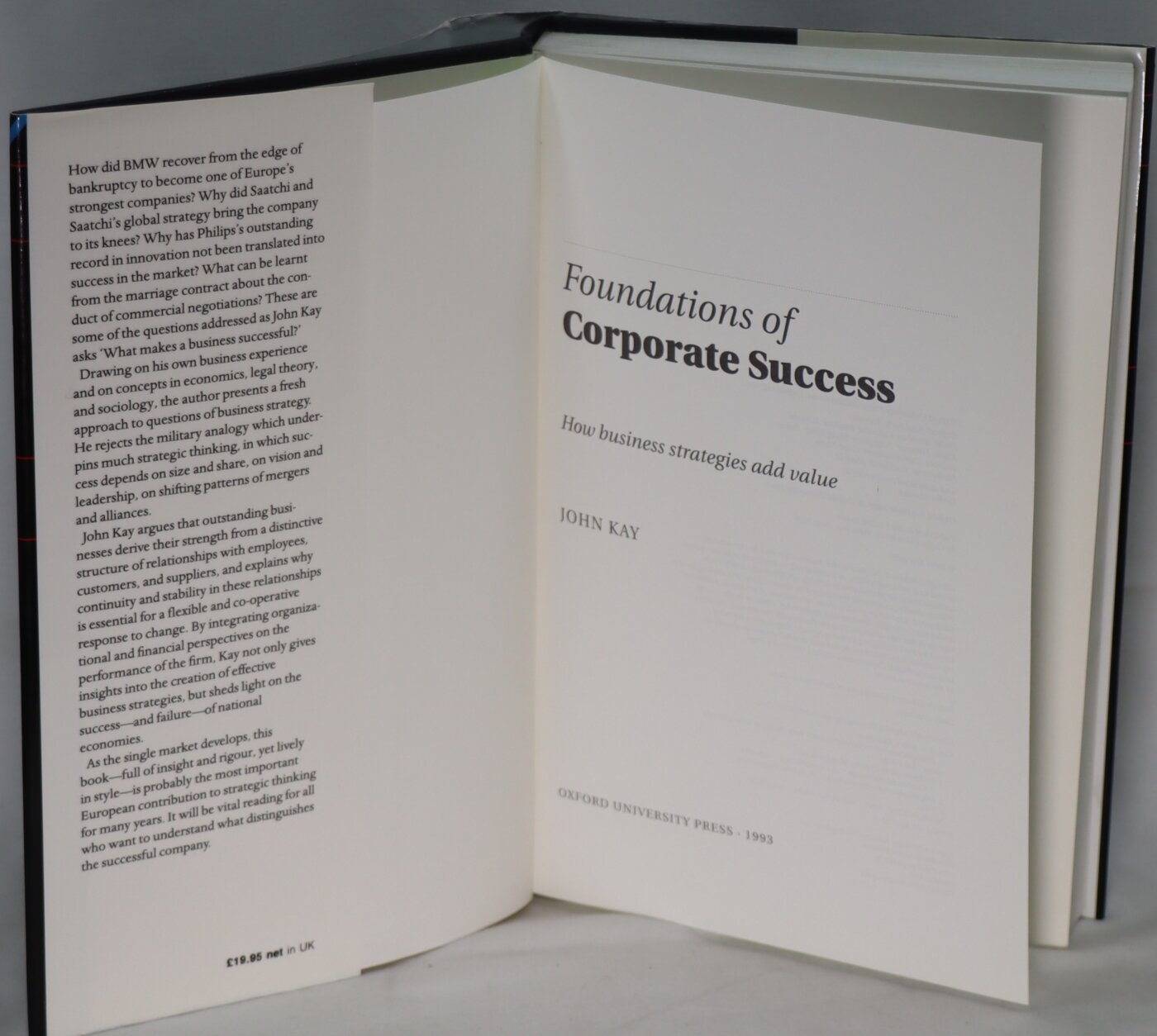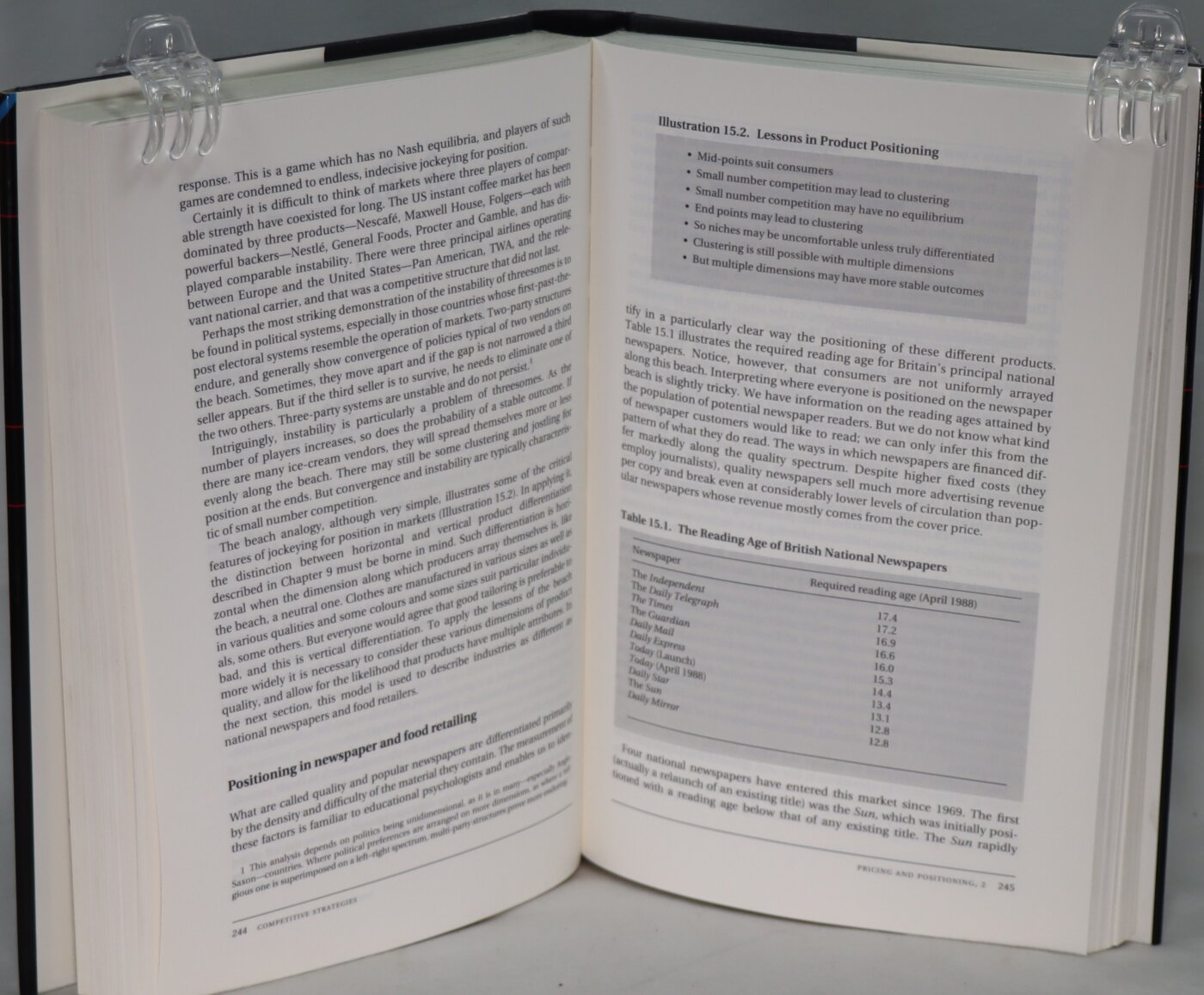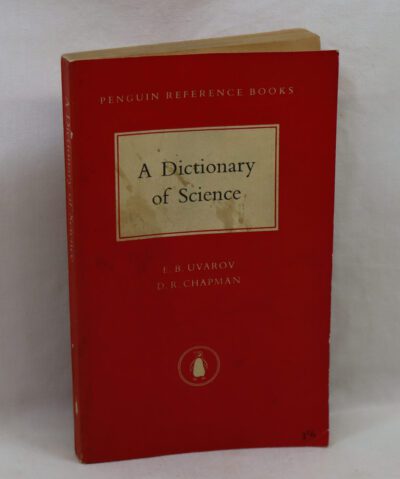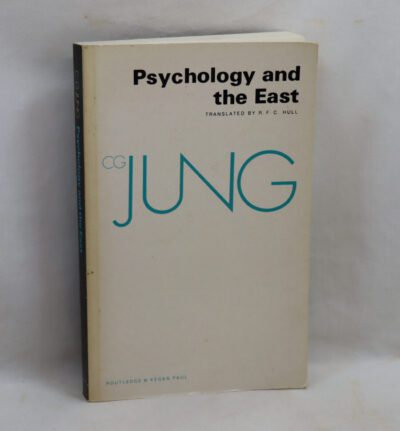Foundations of Corporate Success.
By John Kay
ISBN: 9780191521645
Printed: 1993
Publisher: Oxford Univeristy Press. Oxford
| Dimensions | 16 × 24 × 3 cm |
|---|---|
| Language |
Language: English
Size (cminches): 16 x 24 x 3
Condition: Fine (See explanation of ratings)
Your items
Item information
Description
In the original dust jacket. Black cloth binding with gilt title on the spine.
- We provide an in-depth photographic presentation of this item to stimulate your feeling and touch. More traditional book descriptions are immediately available
Note: This book carries a £5.00 discount to those that subscribe to the F.B.A. mailing list.
How did BMW recover from the verge of bankruptcy to become one of Europe’s strongest companies? Why did Saatchi and Saatchi’s global strategy bring the company to its knees? Why has Philips’ outstanding record in innovation not been translated into success in the market? What can be learned from the marriage contract about the conduct of commercial negotiations?
Drawing on his own business experience and concepts in economics, legal theory, and sociology, John Kay presents a fresh approach to questions of business strategy. He rejects the military analogy that underpins much strategic thinking, in which success depends on size and share, on vision and leadership, on shifting patterns of mergers and alliances.
Kay argues that outstanding businesses derive their strength from a distinctive structure of relationships with employees, customers, and suppliers, and explains why continuity and stability in these relationships is essential for a flexible and co-operative response to change. By integrating organizational and financial perspectives on the performance of the firm, the book not only offers insights into the creation of effective business strategies, but also sheds light on the success, and failure of national economies. Now that the single market is upon us, this lively, perceptive book is probably the most important European contribution to strategic thinking for many years.
Reviews:
- This book is great for those who are studying Management! In this book, John Kay combines theory with real life examples, inspired from the most powerful companies nowadays. It is very comprehensible and covers a variety of Management subjects. I ordered it for exam revision, and it was a very wise thing to do! As a student myself, I highly recommend this book for those who are studying Management as part of their degree.
- 20 years ago this was a five star book with a fascinating way of looking at competitive advantage combined with game theory. But it needs updating.
- Kay shares some interesting perspectives, basic rules and origins of the way businesses work. Knowledgeable and yet accessible for novices in economics and stuff.
Sir John Anderson Kay, CBE, FRSE, FBA, FAcSS (born 1948) is a British economist. He was the first dean of Oxford’s Said Business School and has held chairs at the London School of Economics, the University of Oxford, and London Business School. He has been a fellow of St John’s College, Oxford, since 1970. Born in Edinburgh, Kay was educated at the Royal High School, Edinburgh University, and Nuffield College, Oxford. He lectured in economics at Oxford from 1971 to 1978.
In 1979, Kay became Research Director and the Director of the independent think tank, the Institute for Fiscal Studies. In 1986 he became a professor at the London Business School and founded London Economics, a consultancy firm. He was the first director of Oxford’s Said Business School from 1997 to 1999, and has written at some length as to why he chose to resign after only two years. He has served as a director of Halifax plc and of several investment companies.
In 2003, Kay addressed non-economists, attempting to answer what Robert Lucas has called the most exciting economic question: across the globe, why are so few rich and so many poor?
He is a regular editorial contributor to the Financial Times, where he has also had a weekly column since 1995. He sits on the European Advisory Board of Princeton University Press.
In 2012 he presented a substantial report to the British government on reform of the equity market, which suggested that “the stock market exists to provide companies with equity capital and to give savers a stake in economic growth. Over time that simple truth has been forgotten”. Kay suggested a series of reforms which he hoped would correct some problems with stock markets; some critics suggested his analysis of the problem was better than his proposed solution.
Kay has also served as a member of the Council of Economic Advisers to the First Minister of Scotland from 2007 to 2011. Five months before the 2014 Scottish independence referendum, Kay said it was a “mistake” for voters to think claims of an independent Scotland being one of the world’s wealthiest nations would mean more cash in their pockets. Kay warned that using GDP as a measure fails to reveal how much money bypasses locals by going straight to foreign companies and drew comparisons with Ireland, which appeared “better off” than it actually was before economic meltdown.
He also spoke as part of Asian Institute of Finance’s Distinguished Speaker Series in 2016 entitled “Other People’s Money: Masters of the Universe or Servants of the People?” in Kuala Lumpur, Malaysia.
Books
Some of Kay’s many columns on economics and business topics, published in the Financial Times, are reprinted in:
- The Hare & the Tortoise (2006)
- Everlasting Light Bulbs (2004)
- The Business of Economics (1996)
Other books include:
- Greed is Dead (2020) with Paul Collier
- Radical Uncertainty (2020) with Mervyn King
- Other People’s Money: The Real Business of Finance (2015)
- Obliquity: Why Our Goals Are Best Pursued Indirectly (2010)
- The Long and the Short of It: Finance and Investment for Normally Intelligent People Who Are Not in the Industry (2009, 2nd edition 2016)
- The Truth About Markets (2003). Published in the USA in 2004 as Culture and Prosperity: Why Some Nations Are Rich But Most Remain Poor. HarperCollins.
- Why Firms Succeed (1995), a slightly revised, shortened version of Foundations of Corporate Success, written for the American market.
- Foundations of Corporate Success (1993)
The British Tax System, (1979, and four subsequent editions), with Mervyn King. ISBN 978-0198283133.
Want to know more about this item?

Share this Page with a friend












